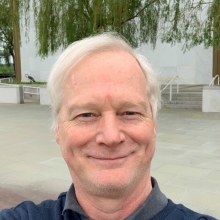Olivier Dupriez is a Lead Statistician with the World Bank’s Development Data Group. He is an advisor to the Data Group on issues related to data management and analytics. Recently Olivier has been leading a work program focusing on exploiting metadata standards, machine learning, and natural language processing models to improve data and knowledge discoverability. He is also a contributor to the development of software applications for data documentation, anonymization, and dissemination.
Olivier joined the World Bank in 2004 to establish the International Household Survey Network (IHSN). He worked with multiple international partners on the development and implementation of tools, guidelines, and good practice on microdata curation, dissemination, and protection.
Prior to joining the World Bank, Olivier worked for four years as a Poverty Statistician with the Asian Development Bank, for five years as a resident expert in population census for the United Nations and European organizations in Cape Verde, Chad, and North Macedonia, and for four years as a consultant (survey statistician) for the World Bank’s Africa region in Djibouti and in Washington, DC. Olivier is experienced in designing and conducting surveys and censuses, in data analysis using Stata and R, and in data management and dissemination.

